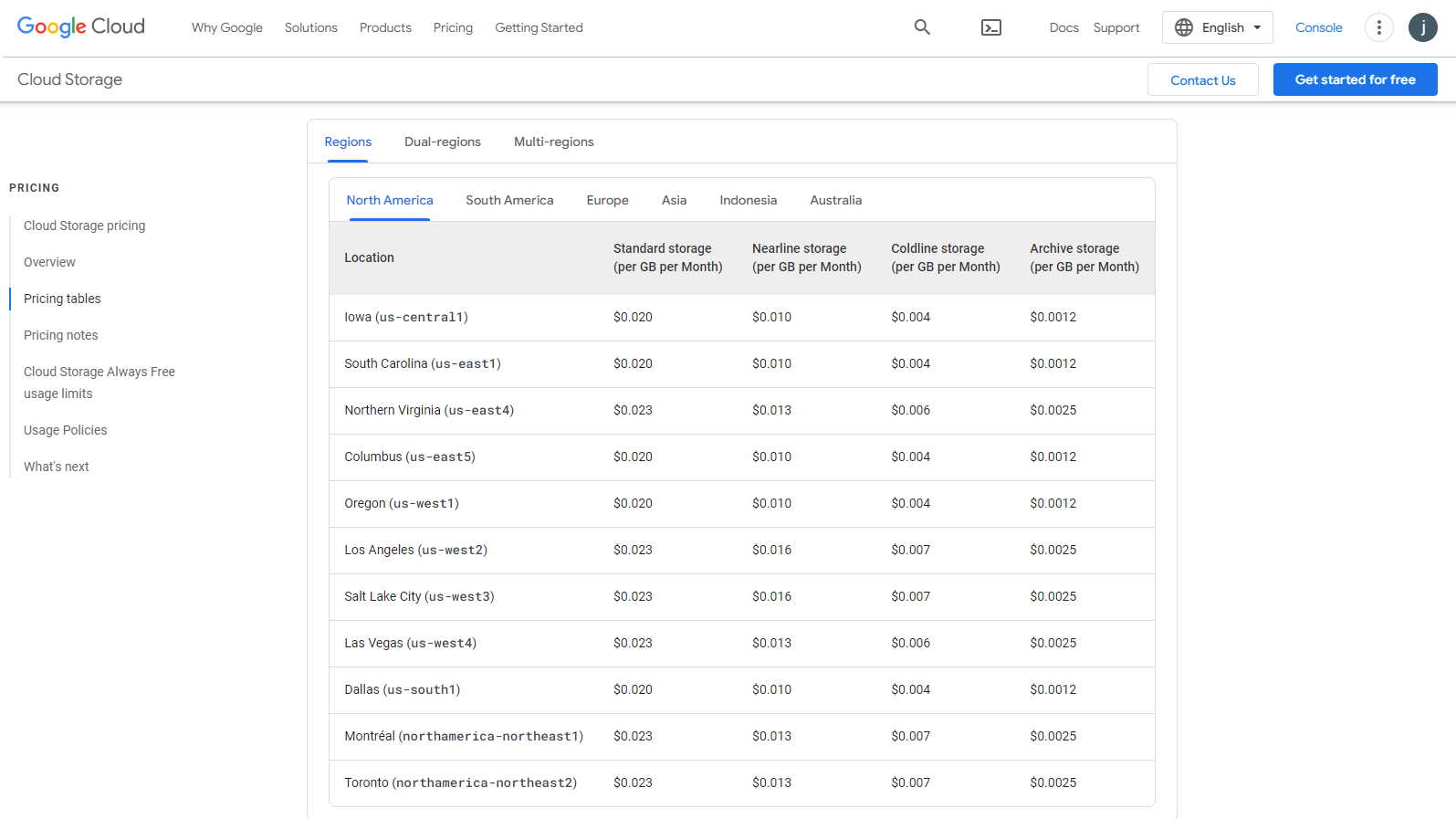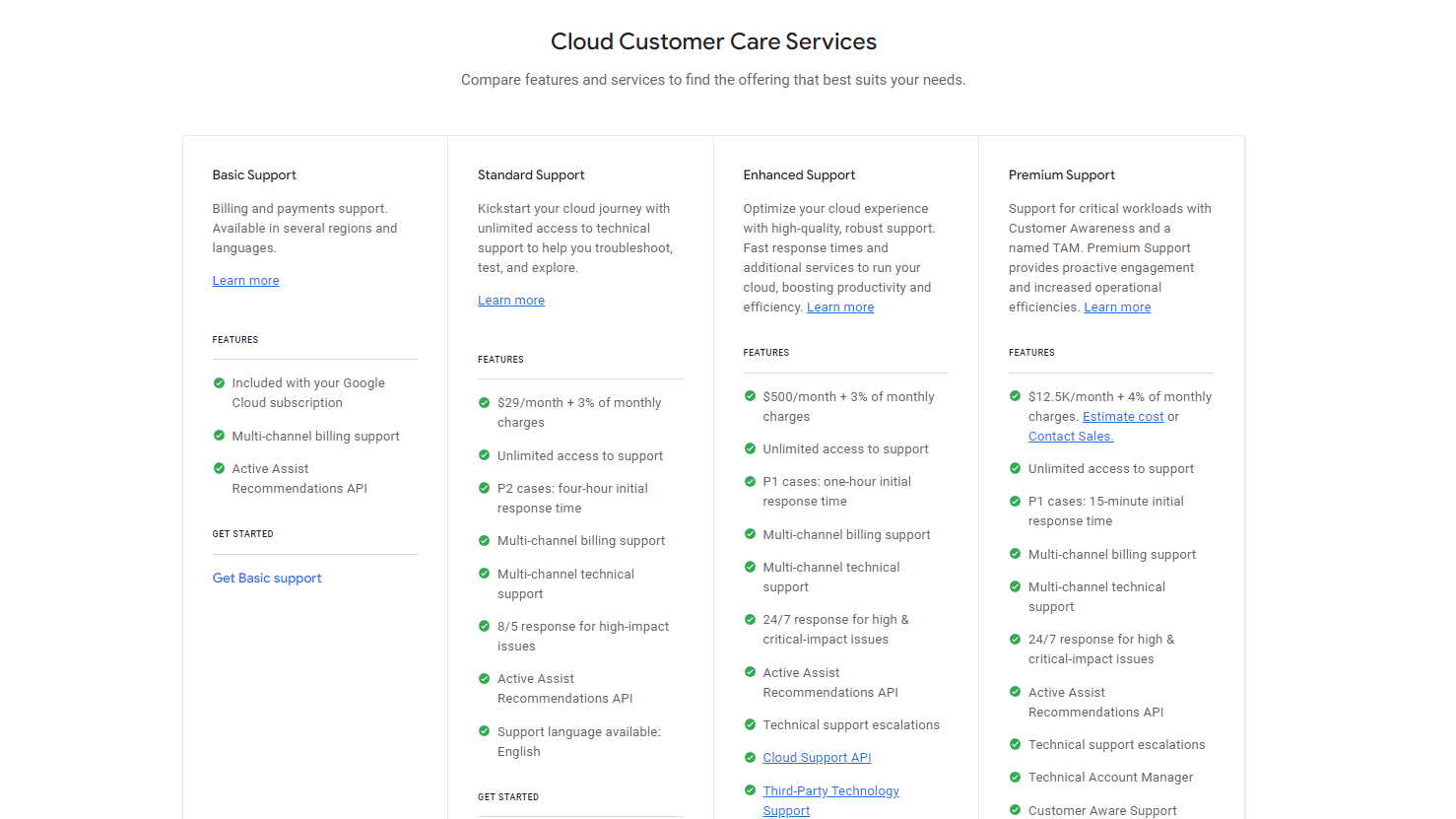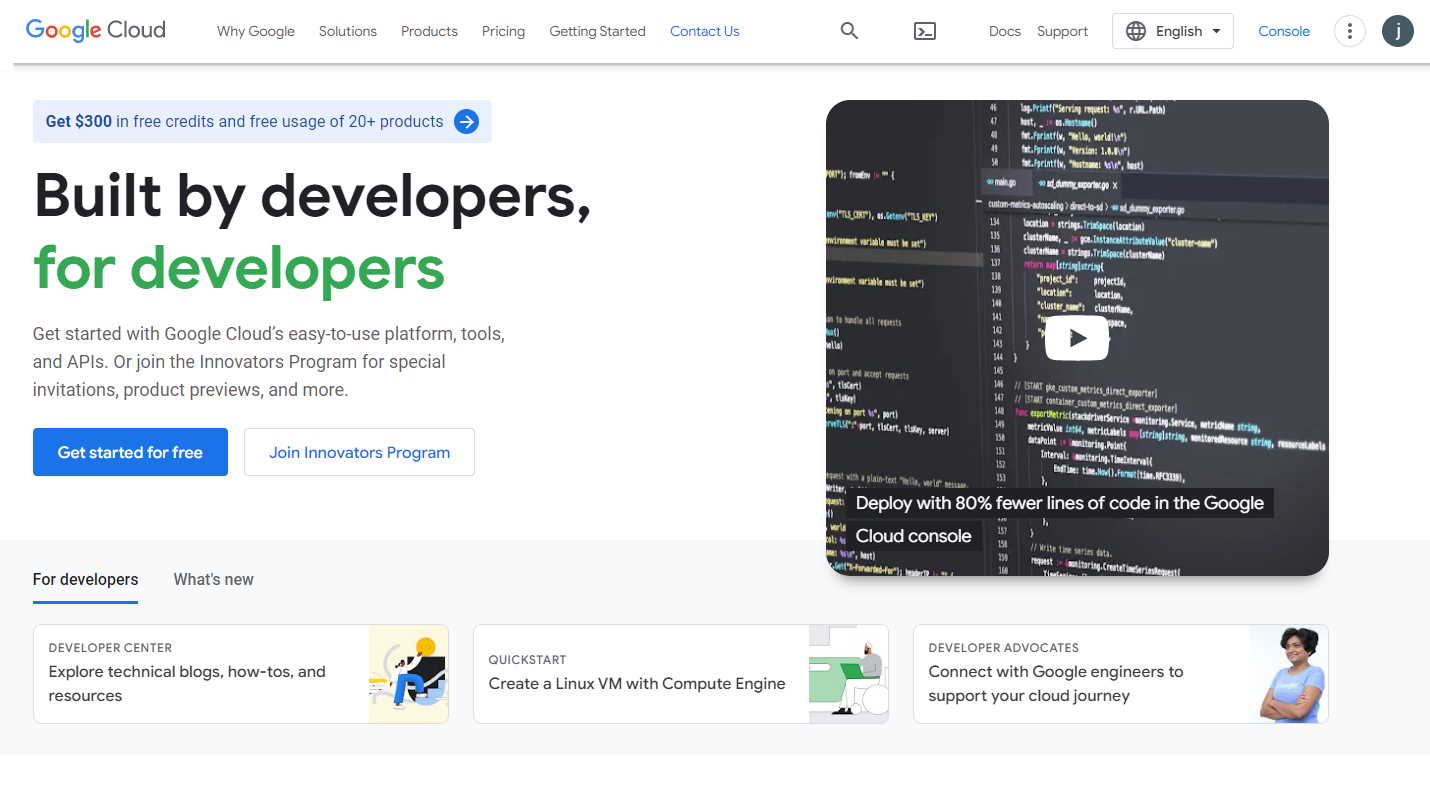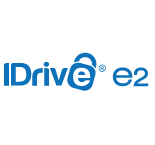TechRadar Verdict
The Google Cloud Platform is a robust offering in the cloud space, with a myriad of cloud options, including object storage. While we love options of where the server is located, and the choice of support, we find the pricing confusing, and the better support packages expensive
Pros
- +
Free trial
- +
Multicloud solutions
- +
Transparent pricing
- +
AES256 encryption
Cons
- -
Lacks direct phone support
- -
Confusing pricing for novices
- -
High cost of support
Why you can trust TechRadar
Ask your favorite tech person which companies they think about when it comes to a cloud storage provider, and it’s a pretty safe bet that Google Object Cloud Storage makes the short list. Therefore, it should not come as a surprise that Google also offers object storage as part of its cloud offering.
A veteran in the space, according to Statista, Google derives about 7% of its revenue from cloud storage, which amounts to approximately $13 billion in 2020. The Google Cloud Platform can host SaaS, IaaS and PaaS to groups all around the globe through its hyperscale data centers. This all contributed to the search engine giant’s $256.7 billion in revenue for 2021. In fact, a staggering 19% of organizations run their workloads via the Google Cloud Platform.
Cheaper than Google Object?
Save on Hot Object Storage compared to the competition with 1TB as low as $20 for the first year. IDrive e2 offers faster performance than competitors, no charge for egress and costs 85% less than competitors.
Google Object Cloud Storage: Plans and pricing
Google Cloud does intend to be transparent about its prices, and also offers a $300 credit that can be spent over 90 days to let users try out the service. The better route to obtain pricing is via a custom quote, as for a novice, the pricing can get fairly confusing.
Looking around, there are prices for the Google Cloud Services, but the prices vary depending on the region of the country the data is served from, and also whether it is in a single region, a dual region, or in multiple regions of North America. There is also pricing available on different continents as well.

By way of example, for a single server in South Carolina that gets designated as US-east1, for standard storage (as opposed to archive, nearline, or coldline which each have a different cost), the charge is $0.20 per GB per month.
Google Object Cloud Storage: Features
It’s pretty simple to see why businesses turn to Google when it comes to cloud services. Being such a large company, Google can offer multicloud solutions, for a high level of efficiency and reliability that only a few other solutions can offer. This then provides a consistent platform throughout the entire deployment with “A service-centric view of all your environment.”
There is also a ‘Trusted cloud infrastructure,’ that provides a high level of security to all of the stored data, and in fact data is protected via the same tools that Google uses to keep its own data safe and secure. This involves progressive layers for a scaled defense, and includes encryption of data at rest, and also in transit. This encryption is AES256, via the Google's central Key Management Service, and inclusion of the FIPS 140-2 Level 1 validated module, BoringCrypto that is used across the Google Cloud services.

Google Object Cloud Storage: Support
Support for the Google Cloud Platform is certainly present and available, although not as direct as we might like to see. While there is a direct number listed, it is designated to call the sales team, with hours of weekdays, 8 AM to 8 PM. There is also an option for a contact form to be completed for a callback, which is also for the sales team.
For support, there is no direct number listed. Rather, users need to head over to the support section of the site. From there, a project must first be selected, and then there are some choices, including support via chat, phone and community.
All users of Google cloud get the basic support tier included in the subscription, but it only provides help with billing, access to the community, and the documentation for self help.
There is the option to upgrade the support, starting with the Standard tier. While the only language available is English, it does add multi-channel billing support, multi-channel technical support, and 8 AM to 5 PM response for high-impact issues and a four hour response for P2 issues. The cost is $29 per month, plus 3% of the monthly charges.
Then there is enhanced support, which upgrades to a 1 hour response for a P1 issue, 24/7 response for high impact issues, and has available technical support escalations. This better support jumps the cost considerably to $500/month, with an additional 3% of the monthly charges. It also adds to the support languages to encompass English, Japanese, Mandarin Chinese, and Korean.
Finally, there is priority support, which ups the ante further to a 15 minute response time for a P1 issue, has an assigned Technical account Manager, an Event Management Service, training credits and Customer Aware support. This level of support does command the premium of $12.5K monthly, along with 4% of the monthly cost.
Also consider
Google Cloud Service is certainly a reasonable option in this space, and we can see why so many businesses choose it given the robust and secure servers. We would compare it against IDrive e2, another object cloud provider that offers high server uptime with multiplatform support, but also has a free tier, along with value pricing and better included support.
Final verdict
The Google Cloud Platform enjoys a substantial market share for plenty of good reasons. These include the free trial, the almost endless options for choosing storage with the ability to specify locations and numbers of servers, and the AES256 encryption throughout.
We did find some shortcomings, such as that this service is more expensive, and that the support, depending on the tier, can seriously add thousands additional to the cost for a user that needs the top level of support. However, for an enterprise application that needs a top service, this Google Cloud Platform is more than worthy of making the short list of object service providers.
Jonas P. DeMuro is a freelance reviewer covering wireless networking hardware.

